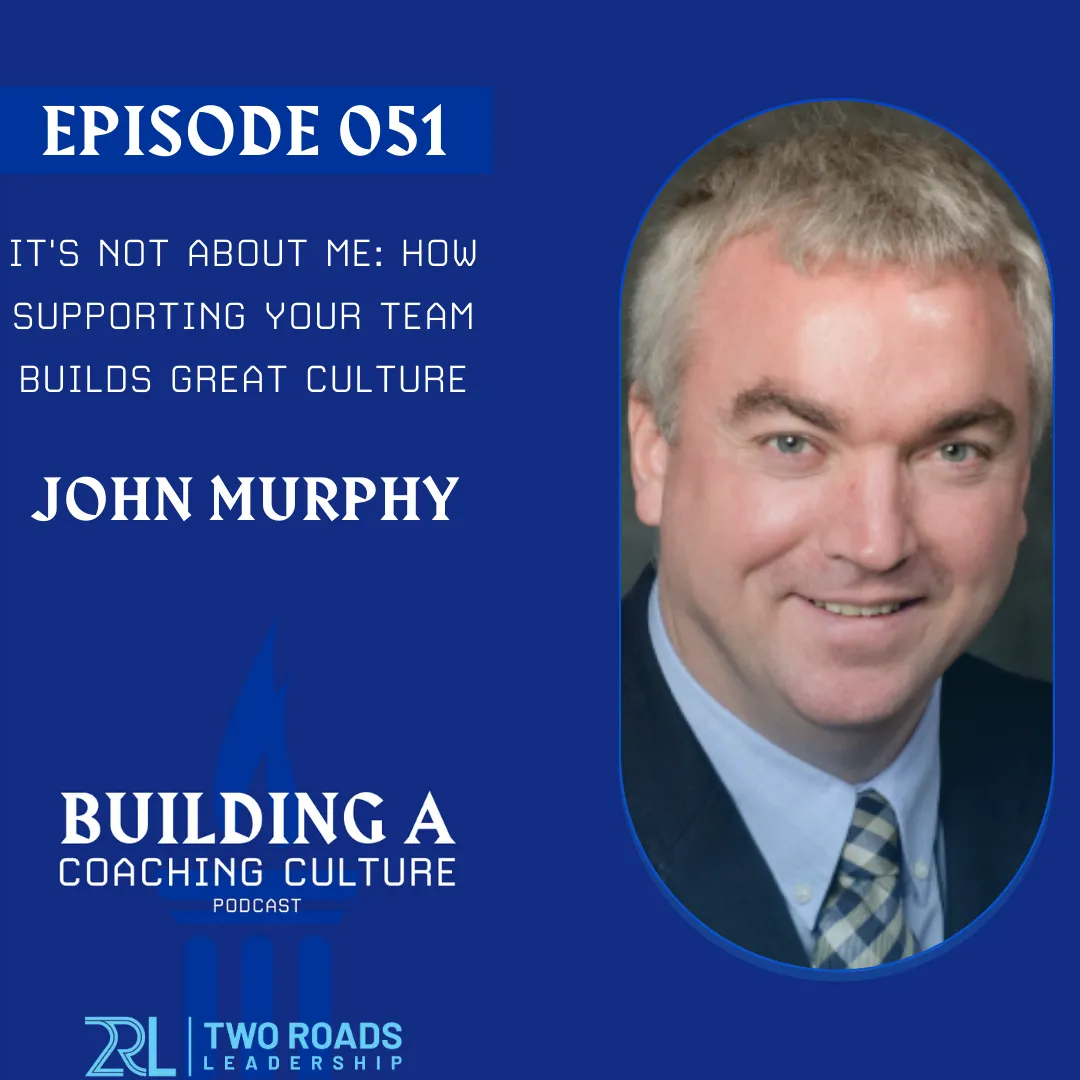"It's not about me."
That's what our guest on the podcast this week says about leadership. John Murphy is currently a strategic advisor and executive coach and he has decades of experience in corporate roles, having worked within the GE Capital Aviation industry and in other areas. In this episode he talks about the importance of people, treating them with respect, helping them succeed, and letting go of micromanagement.
In this episode you'll discover:
- The 2 parts of effective communication
- Why focusing on your team and what they need is so important
- Culture is about how you behave and how you treat people
- How letting go of micromanagement make you a better leader
Building a Coaching Culture is presented by Two Roads Leadership
Produced, edited, and published by Make More Media
Episode Links
John Murphy
J.R. Flatter
Founder of Two Roads Leadership
Lucas Flatter
Books
Resources
2RL 4 day Coach Certification Bootcamp
2RL ICF-Approved Coach Certifications and Trainings
Transcript
Automatic Transcription - please excuse any errors

